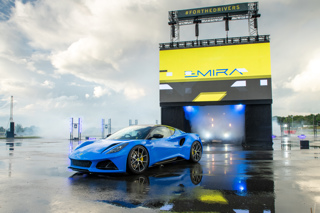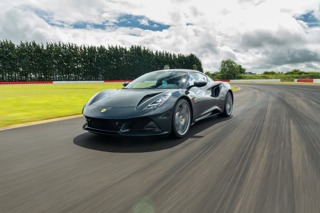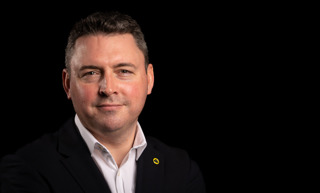![]() The aggregated sales of the UK’s top 50 independent used car retailers have risen by £300 million in a year. The ID50 now brings in total annual revenues of £3.5 billion, compared with £3.2bn in 2014.
The aggregated sales of the UK’s top 50 independent used car retailers have risen by £300 million in a year. The ID50 now brings in total annual revenues of £3.5 billion, compared with £3.2bn in 2014.
However, growth has slowed as the stock levels in the used car market have reached peak levels and certain independent dealers in high-value classic cars have stepped off the gas. Two car supermarket operations have also exited the rankings, due to closure or acquisition.
Since 2012, the ID50’s turnover had been increasing at a rate between £650m and £700m per year, and the rate of growth from 2013 to 2014 was 24%, compared with 9% growth between 2014 and 2015.
Scale of growth
For the second ID50 report, Motorpoint continues to lead the market and has stretched its lead over Car Giant. Motorpoint’s
revenues rose by £166m year-on-year, to reach £729.2m, as its sales volumes leaped by 26%, while Car Giant’s £86m increase took it past the half-billion pound mark for the first time, to £552.3m.
Since filing its 2015 accounts, Motorpoint has opened its 10th and 11th dealerships, in Castleford and Oldbury, and, as the ID50 went to press, was about to open its 12th in Sheffield, on a former Carcraft site.
It claims to have 24% of the UK population within 30 minutes’ driving time of a Motorpoint car supermarket, and has a long-term strategic ambition for at least 20 retail locations and increased sales through its website and centralised contact centre. Motorpoint claims about 30% of its customers began their vehicle purchase journey through the contact centre as a result of a website visit, which allows them to reserve a vehicle until they are able to inspect it in the metal.
Car Giant still awaits the relocation of its vast car supermarket in north-west London to allow for a major regeneration of the Old Oak Park area. Owner Geoffrey Warren wants the 43-acre complex, Car Giant’s home for the past three decades, to be developed with 7,000 new homes, schools, shops, parks and a cultural quarter.
Available Car remains third in the ID50, with turnover up £23m to £231.4m as it continued to grow sales at its outlets, and promised to move any car to a consumer’s nearest branch for the convenience of a test drive. Its acquisition of an 11.5-acre former Carcraft property near Leeds completed too late in the year to give a boost to its 2015 accounts; the benefits should be seen in next year’s ID50, although the size of the gap to Car Giant means little movement among the top three is likely.
CarShop was last year’s fourth-placed independent dealer, which had looked set to narrow the gap with Available Car. However, its acquisition by franchised dealer group Sytner in January 2017 (full report on page 17) takes it out of the ID50.
This moves The Car People into fourth position, with £178.7m turnover, a £9.3m increase. Its 5.5% growth was among the smallest gains in the ID50, but it was all organic and the first of its three outlets, Wakefield, has been constrained by capacity. The site has now been expanded from 8.5 to 12 acres, and further growth in turnover is to be expected when The Car People’s fourth dealership at Warrington opens later in 2017. That site will be the company’s largest.
Kent-based Big Motoring World has climbed four places up the ID50 to secure 5th place, with turnover of £138.6m. Its 44% year-on-year growth in revenues followed rapid volume growth at its West Malling prestige brand car supermarket and its two sister Canterbury Motoring World dealerships. The company has had planning approval for a 22-acre new-build car supermarket at Blue Bell Hill, which will display thousands of BMW, Mercedes-Benz and Audi cars. That will come in addition to expansion of the West Malling outlet to double the site’s capacity. The group’s workforce will treble as a result, according to owner Peter Waddell.
The highest rank in the ID50 occupied by a niche classic and supercar retailer is sixth place, the same as last year. But the occupier has changed to JD Classics (8th last year), following its £21.2m boost in revenues to £121.8m (see page 36 for our ID50 dealer spotlight on JD Classics).
Previous incumbent Talacrest recorded an £80m plunge in turnover, sending it 21 places down the ID50. The cause of the sudden decline was a change of strategy. Having supplied high-value cars to global customers for years, owner John Collins wants to build the company’s brand in strategic overseas markets. He decided to limit the number of cars the business bought and sold during the year while focusing for nine months on building a scalable international franchise model, which has already led to the sale of two Talacrest franchises in the Middle East and Far East.
Aside from Harrogate-based prestige and supercar dealer GC Motors, a new ID50 entrant at 10th in the rankings, the only other classic and supercar specialist to rank in the top 10 of the ID50 was DK Engineering (featured on page 24). Having completed an 11-car showroom and expanded its 70 car storage facility by half, it has been growing its sales and services for Ferrari collectors.
The remainder of the top 10 is dominated by car supermarket chains. Fords of Winsford continues to grow slowly, but steadily, with turnover reaching £107.5m. However, its two-site business is being rapidly caught by Imperial Cars of Swanwick, which has six sites and revenues of £107.4m following a programme of rapid expansion since 2012.
Speed of growth
Expansion into new territories and facilities is a common theme behind the fastest-growing used car retailers in the ID50.
New entrant Big Cars leads the turnover increase table after rapid growth since 2013 at its original two-site operation in Essex. Having been focused on premium used cars, it expanded one of its Essex branches, Witham, to launch a new operation, Big Cars Direct, specialising in city cars and superminis in the £5,000-£15,000 price bracket. Its revenues rose by 80.7% to £24.3 million by the end of 2015. In 2016, it expanded again, adding two new branches in Surrey and Suffolk, so it is likely to climb towards the mid-way point of the ID50 next year.
Under the control of young entrepreneur Adam Stott, Big Cars claims to have sold more than £50m of cars using Facebook since he launched the business in 2008. Social media is an integral part of its business model, and generates more than 1,000 leads per month for the business. A dedicated digital team nurtures those leads, with speed and usefulness of response key measurements, before the qualified lead is passed on to a sales executive for the test drive appointment.
Stott is a firm believer in incremental growth as well as business expansion. He told ID: “We look at what we can do to improve our performance by just a little bit each week. It’s not just sales, I meet with every department.”
JM Performance posted the second-fastest rise in turnover, a 60.3% rise to £74.7m, after moving its long-established Joe Macari Performance Cars dealership into a large new showroom in south-west London. Specialising in sales of pre-owned supercars costing six or seven figures, the business also has an authorised repairer franchise for Ferrari and Maserati, and offers restoration services for classic sports car owners.
Yorkshire-based Motor Depot took the final podium place for growth. It recorded a 60% jump in turnover to £77.5m after taking on its first outlet in the Midlands, moving into a former Car Select site near Birmingham International Airport with display space for 500 cars. Six months later, it expanded again, this time into Lincolnshire, taking over a small outlet in Grimsby. The additional revenues those sites will provide leave Motor Depot poised to enter the ID50’s top 10 next year.
Profitability
JD Classics tops the league in terms of outright profitability, and is a consistent performer, with its return on sales remaining above 17%. With such strength and resilience, it is understandable that the business attracted investment from private equity firm Charme Capital Partners, which bought a majority stake last September.
Yet in pounds and pence, Car Giant knocks JD Classics into second place. The privately owned north-west London car supermarket has been steadily increasing earnings and recorded £48.3m profit before tax in 2015, a 31% increase year-on-year and more than double the profits of any ID50 rival. It is reaping the rewards of its ability to display more than 2,100 cars in one location, to market to a capital city of more than 8m inhabitants, and of its recent investments in developing its own dealer management system and in training its 750 staff. Its focus is now on improving its stock turn, currently about 6.4 times per year.
Motorpoint ranks third for profit before tax, at £18.2m, but it ranks 20th for return on sales (2.5%) and is bettered in terms of efficiency by many of its smaller rival car supermarkets. Motorpoint competes with franchised dealers for customers, and when benchmarked against the franchised sector, where 1-1.5% is average, its returns are respectable.
In contrast, Trade Centre Wales, which now operates three outlets in south and mid-Wales, achieved £6.7m profit before tax from £77m revenues, generating 8.7% RoS. Its chairman, Mark Bailey, said its current growth trends should continue with focus on its core competencies – demand for used cars and motor finance is strong in its marketplace and it has invested in new preparation facilities to streamline the flow of stock from acquisition to sale. It is preparing to open its first outlet in England, on the site of Carcraft’s former car supermarket in Wednesbury.
At the other end of the scale, Carbase recorded a drop in RoS from 2.9% to 0.3% after it acquired a loss-making car supermarket in Bristol in September 2015 and invested in turning it around, as we reported in the Spring 2016 issue of Independent Dealer.
Chairman Steven Winter said the fall in profit levels were “short-term”. He added: “We expected and planned for several months of losses before returning to profit in January 2016 as our operational improvements took effect.”
Winter said the business is now “a much more valuable entity” with vastly increased profit potential created by the addition of its fourth site. He expects the Bristol car supermarket to contribute annual profits of more than £2.5m at full capacity, whereas the company’s three other sites are space-constrained and unlikely to significantly exceed £1m profit each, he said.
Methodology
Financials are for the year ended December 31, 2015, (the latest available) or the year-end nearest to December 31, 2015.
Profit before tax (PBT) is calculated excluding non-trading related exceptional items.
Stock turn, in the absence of a detailed breakdown, is calculated using stock and cost of sales from the statutory accounts. While this may mean a loss of some degree of precision, the basis is consistently applied and non-stock related items in cost of sales should not be material.
Profit per staff member is calculated using profit before interest and tax (PBIT) since finance cost does not relate directly to the activities of individual staff members.




















Login to comment
Comments
No comments have been made yet.